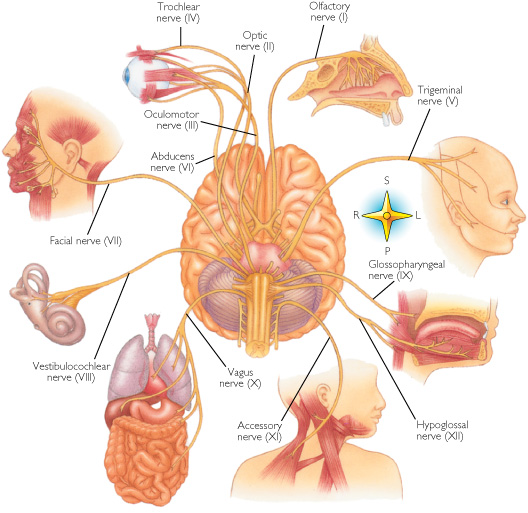As an EMDRIA Approved EMDR Consultant and co-developer of several EMDR Advanced Workshops at the Maiberger institute I have had many opportunities to present on the work of Dr. Stephen Porges and the Polyvagal Theory. Seeing Dr. Porges at the 2012 EMDRIA Conference was an opportunity to refine my own understanding of the Polyvagal Theory and has strengthened my ability to translate the value of this work to EMDR practitioners. The Polyvagal Theory offers an essential framework for observing arousal states in our clients and highlights the value of keeping clients resourced, present-centered, and relationally oriented as keys for nervous system regulation.
 I know that when I was first introduced to the concept of the nervous system and its relevance to stress and trauma, I was taught that there are two primary states of the autonomic nervous system: 1) The sympathetic nervous system which involves fight and flight responses in the body, and 2) the parasympathetic nervous system which involves the relaxation response. However, Dr. Porges elucidates that there are both positive and negative states associated with each of these autonomic states. Not only can high arousal states be associated with stress and the impulse to fight or flee, but when we are safe the same high arousal states facilitates excitement and play behaviors. In fact, if we didn’t engage our sympathetic nervous systems we would likely be depressed! When we are safe, the parasympathetic system is linked with relaxation, and Dr. Porges further describes this slowed-down state to facilitate bonding, attachment, and intimacy. However, if we feel unsafe, the same low arousal system in the body functions can leave us feeling immobilized, stuck, and in despair.
I know that when I was first introduced to the concept of the nervous system and its relevance to stress and trauma, I was taught that there are two primary states of the autonomic nervous system: 1) The sympathetic nervous system which involves fight and flight responses in the body, and 2) the parasympathetic nervous system which involves the relaxation response. However, Dr. Porges elucidates that there are both positive and negative states associated with each of these autonomic states. Not only can high arousal states be associated with stress and the impulse to fight or flee, but when we are safe the same high arousal states facilitates excitement and play behaviors. In fact, if we didn’t engage our sympathetic nervous systems we would likely be depressed! When we are safe, the parasympathetic system is linked with relaxation, and Dr. Porges further describes this slowed-down state to facilitate bonding, attachment, and intimacy. However, if we feel unsafe, the same low arousal system in the body functions can leave us feeling immobilized, stuck, and in despair.
One of the biggest issues that we face as humans is when we feel trapped by our own arousal states. These are the times that we feel panicky and anxious without the ability to calm down or those times we feel depressed and unmotivated without the ability cultivate the energy to get things done. Sometimes we alternate between these two states without reason.
The brilliance of the Polyvagal Theory is the understanding that there are three, not two, levels of the regulatory nervous system. As the name suggests, these three branches are associated with the Vagus nerve that connects from the brain through all major systems in the body: the stomach and gut, heart, lungs, throat, and facial muscles! Importantly, the most recently evolved branch of the Vagus (the mylenated ventral Vagus to be exact) nerve functions as a regulatory system that mediates the actions of the sympathetic and parasympathetic expressions of the nervous system. When engaged, this regulating system helps orient us towards connection and is literally responsible for the warmth in a smile or the sparkle in the eyes. In addition to our connecting relationally, because this evolved vagal nerve enervates the heart and lungs, our breath becomes an essential tool for regulating our arousal states.
We already know that EMDR facilitates adaptive functioning in response to trauma. We become more flexible cognitively and somatically. Understanding the Polyvagal Theory within EMDR can serve as a guide to the treatment of physical symptoms, and treatment of early attachment injuries. I, along with Barb Maiberger, will be integrating these teachings into two EMDR Advanced Workshops at the Maiberger Institute:
- EMDR Therapy Tools for Attachment Trauma
- EMDR Therapy Tools for Chronic Pain and Illness
- EMDR Therapy Tools with Somatic Interventions
Books by Dr. Stephen W. Porges available on Amazon.com
- The Polyvagal Theory: Neurophysiological Foundations of Emotions, Attachment, Communication, and Self-regulation
- Attachment and Bonding: A New Synthesis
- Psychophysiology: Systems, Processes, and Applications
Look in EMDR Therapy Resources for a list of more EMDR Therapy Books.
About Guest Blogger Dr. Arielle Schwartz

Dr. Arielle Schwartz is a licensed clinical psychologist offering a psychotherapy, consultation, and supervision. Dr. Schwartz has been licensed and in private practice since 2002. She trained in EMDR Therapy in 2001 and is an EMDRIA Certified Consultant. She has been the CE Program Advisor, and a trainer with the Maiberger Institute since 2008. She presented at the EMDRIA Conference on the subject of Cultural Diversity and EMDR Therapy. Dr. Schwartz offers additional trainings and presentations on topics of Resilience Strategies for Grief and Loss, Play Therapy and EMDR Therapy for Children, and Treating Complex Trauma with EMDR Therapy. Dr. Schwartz is a certified Kripalu yoga instructor since 1996. She serves on the training committee for the Boulder Institute of Psychotherapy and Research/InReach supervising and training post doctoral and internship students. Additionally Dr. Schwartz serves on the board for the Grief Support Network, a community nonprofit profiting bereavement services.
Arielle Schwartz’s Website
Image Source: “cranial_nerve”
The Maiberger Institute is an Amazon.com Associate.






Pingback: The Work – Top Down & Bottom Up - CHOPPED WOOD CARRIED WATER